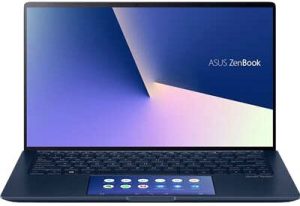The Origin and Evolution of Computer
The Origin and Evolution of Computer
The Origin and Evolution of Computer
A computer is an electronic device that can perform a wide range of operations, including arithmetic and logical operations, data storage and retrieval, communication, and control of other devices. A computer can be programmed to carry out specific tasks and is capable of processing large amounts of data quickly and accurately.
A typical computer consists of several components, including a central processing unit (CPU), memory (such as RAM), storage (such as a hard drive or solid-state drive), input devices (such as a keyboard and mouse), output devices (such as a monitor or printer), and various ports and connectors for connecting to other devices and networks. Modern computers can be found in various forms, including desktops, laptops, tablets, and smartphones.
The computer has become an indispensable tool in our lives today, but it hasn’t always been that way. The origins of the computer can be traced back to early abacuses and calculators, which were used to perform basic arithmetic functions. Over time, these simple tools evolved into more complex machines capable of performing a wide variety of tasks.
Origins of the Computer
The origins of the computer can be traced back to ancient times when people used simple tools like pebbles, sticks, and bones to perform basic arithmetic functions. One of the earliest examples of a computing tool was the abacus, which was invented in ancient China around 500 BCE. The abacus was a simple device consisting of a frame with beads or stones that could be moved back and forth to perform addition and subtraction.
Another early example of a computing tool was the Antikythera mechanism, a complex clock-like device that was discovered on a sunken Greek ship in 1901. The Antikythera mechanism is believed to have been used to track the cycles of the moon and the planets and is considered to be one of the oldest known examples of a geared mechanism.
The Development of Calculators and Early Computers
Over time, calculators and other computing tools became more sophisticated, with the development of the slide rule in the 17th century and the mechanical calculator in the 19th century. In the late 1800s, a number of inventors began to develop early mechanical computers, including Charles Babbage, who designed the Analytical Engine, a mechanical computer that was never built, but which was the precursor to modern computing.
In the early 1900s, a number of pioneers in the field of computing, including Herman Hollerith, developed early electronic computers that were used primarily for data processing. These machines used punched cards to input and store data and were used extensively for tasks like accounting, payroll, and census taking.
The Advent of Digital Computing
The invention of the transistor in the 1940s marked a major turning point in the history of computing, as it allowed for the development of the first truly digital computers. These early computers, which were developed by pioneers like John von Neumann and Alan Turing, used binary code to represent data and could perform complex calculations at high speeds.
Over time, computers became smaller and more affordable, with the development of integrated circuits and microprocessors in the 1970s and 1980s. The invention of the personal computer in the 1980s marked a major milestone in the evolution of computing, as it brought the power of computing into the hands of individuals and small businesses.
The Rise of the Internet and Mobile Computing
The advent of the internet in the 1990s marked another major milestone in the evolution of computing, as it allowed for the development of new forms of communication and collaboration. The rise of mobile computing in the 2000s and 2010s has also transformed the way we use computers, with smartphones and tablets allowing us to stay connected and productive on the go. 0 0 0.
The Origin and Evolution of Computer
Sources: The Origin and Evolution of Computer
Computer History Museum: https://computerhistory.org/
IEEE Annals of the History of Computing
The History of Computing Project
The Stanford Encyclopedia of Philosophy.***
The Origin and Evolution of Computer
You May Like:
- The Steady State Theory of the Origin of the Universe
- The History of Jupiter Exploration
- The Exploration of the Sun
N.B. The article ‘The Origin and Evolution of Computer’ originally belongs to the book ‘Essays on Science And Technology‘ by Menonim Menonimus.
The Origin and Evolution of Computer
Books of Composition by M. Menonimus:
- Advertisement Writing
- Amplification Writing
- Note Making
- Paragraph Writing
- Notice Writing
- Passage Comprehension
- The Art of Poster Writing
- The Art of Letter Writing
- Report Writing
- Story Writing
- Substance Writing
- School Essays Part-I
- School Essays Part-II
- School English Grammar Part-I
- School English Grammar Part-II..
Related Search:











